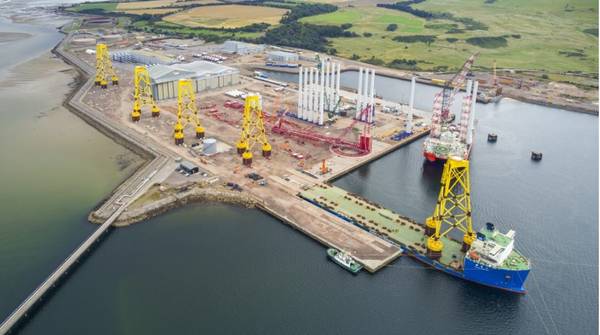
UK-based Global Energy Group and Swiss-based integrated energy company, Proman have partnered up to develop a renewable power to methanol plant using local sources of captured CO2 to be located at the Nigg Oil Terminal in the Highlands of Scotland.
GEG is also the owner of the Nigg Oil Terminal and Proman is the second-largest methanol producer in the world-
GEG said that the development of an industrial-scale renewable power to methanol production facility with CO2 to be provided from local industrial sources will be known as the “Cromarty Clean Fuels Project“. Subject to the successful completion of ongoing financial and technical feasibility studies, and further development and financing of the project, Proman will become the owner, operator, and offtaker of the green methanol production facility.
According to GEG, the Cromarty Clean Fuels Project team is now assessing the commercial, technical and financial viability of a renewable power to methanol production and export facility with the ability to store onshore at Nigg and load methanol to be exported on bulk carrier vessels using the repurposed Nigg Jetty. The feasibility study is investigating how project feasibility changes with scale, to determine optimal scale for the project.
Green methanol is a renewable, liquid, product that is used as a transportation fuel or as a feedstock in the chemical industry. It is produced from recycled carbon dioxide and hydrogen produced from renewable electricity using proven technologies such as electrolysis.
Green methanol can be used as a fuel which drastically cuts greenhouse gas (“GHG“) emissions by eliminating sulfur oxide and particulate matter, and significantly reducing nitrogen oxide and carbon dioxide emissions, GEG said.
Tim Cornelius, CEO of Global Energy Group, commented: “We are delighted to be joining forces with Proman on this potentially seminal project for Scotland. Green methanol can be made from many plentiful sources and with the efforts being made to capture North Sea carbon dioxide, we hope to become an important customer and consumer of projects such as the Acorn Project to produce clean fuels for the wider maritime transport sector.
"Onshore and offshore wind is one of the world’s fastest growing sources of energy, however, wind power must be dispatched as soon as it is produced, even if there is not enough demand for electricity. When this happens, operators have little choice but to disconnect the renewable source from the grid, leading to wasted energy and costs for governments and operators.
"This plant will have the capability of harnessing excess power to produce green methanol, which can then be used as an automotive or shipping fuel or as a chemical building block in thousands of everyday products.“